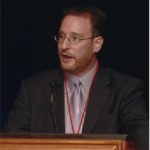
This four-part article explores the nature of truth through the prism of quality, mass media, culture, and art. In part one, we posed the question of why truth matters, and considered how the quality professional’s toolkit can help mine mountains of data to uncover hidden nuggets of meaningful information. In part two, we delved into how media helps and hurts in the quest for truth.
In part three, we talked about volatility, uncertainty, complexity, and ambiguity, and explained why 1950 changed truth and fiction forever. Here, in the fourth and final part of the series, we ask what we can each do to peer into the abyss of confusion and emerge with some sense of clarity about how to interpret conflicting views of reality.
Ask anyone for their perspective on reality and you’ll find a spectrum of belief befitting the vast variety of human experience. Quality professionals would tell you that truth can be discerned from data, properly sifted into actionable information. Creators and consumers of media see fragmented truths, each of which is as valid as any other. Advocates of VUCA believe that preparing for uncertainty can allow one to best understand reality. Juran advocated for acting on the information that matters most; Kurosawa believed that there is no absolute truth aside from the belief inhuman redemption.
Effectively sorting through these contradictory conceptions requires not only rigorous self-examination; it also means honestly and empathetically exploring their meanings with others. Unfortunately, that’s not how it works, for the search for truth isn’t a pursuit of dispassionate rationalism. Too often, people use their opinion of the truth as a cudgel to be at those on the other side of an issue into submission, with ready-made “facts” that can prove or disprove pretty much anything. This is the blind alley down which we find ourselves in today’s America, with no path forward and little chance of going back. One cannot, after all, un-ring a bell that’s been struck.
The great Scottish engineer and physicist William Thomson (elevated to the peerage as Lord Kelvin in 1892) once said, “When you can measure what you are speaking about, and express it in numbers, you know something about it; but when you cannot measure it, when you cannot express it in numbers, your knowledge is of a meagre and unsatisfactory kind.” He was speaking, of course, about pure scientific inquiry, the stark and powerful blacks and whites of facts and figures as they represent the natural world. But the quest for immutable truth on which most people in a society can agree is a foundation of the modern world, even as it applies to real-world topics that are, nominally at least, debatable.
Taking accurate measurements is one thing; convincing others of the truth and meaning of those data is something else entirely. The truth of the truth is that it has never been easier or more effective to spread convincing lies to the furthest reaches of the planet instantaneously. This noise can drown out the voices trying to counter it and make it well-nigh impossible for those seeking knowledge to weigh the pros and cons of information.
I think the best way to approach this dilemma is to investigate anything you read or are told as Lord Kelvin or any self-respecting quality assurance professional might: by gathering all the possible data, keeping an open mind, and questioning everything—even yourself.
More than that, I’d recommend good ol’ Occam’s razor, which essentially states that when presented with competing hypotheses, the solution that requires fewer assumptions is generally the preferable one. Occam’s razor has been used for centuries to cut through the chaos inherent in the marketplace of ideas and help individuals apply common sense and critical thinking to the problem of separating fact from fiction.
This is an issue that we need to address quickly because bad actors, particularly those online, are getting better and better at deception. Unless we re-learn the value of truth (and get better at identifying it) we can’t fully enjoy the technological benefits of our interconnected global society. Knowledge is the currency that runs our modern world, and truth is the precious metal that undergirds it. We don’t all need to see things in the same way, but we do need to see clearly and as unambiguously as possible. Only in this way can we agree, or disagree, with sensibility and common, basic respect.
Mike Richman is the principal of Richman Business Media Consulting,a marketing and public relations company working with clients in the worlds of manufacturing, consumer products, politics, and education. Richman also hosts the web television program NorCal News Now, which focuses on social, economic, and political issues in California. He is a contributor to (and former publisher of) Quality Digest.